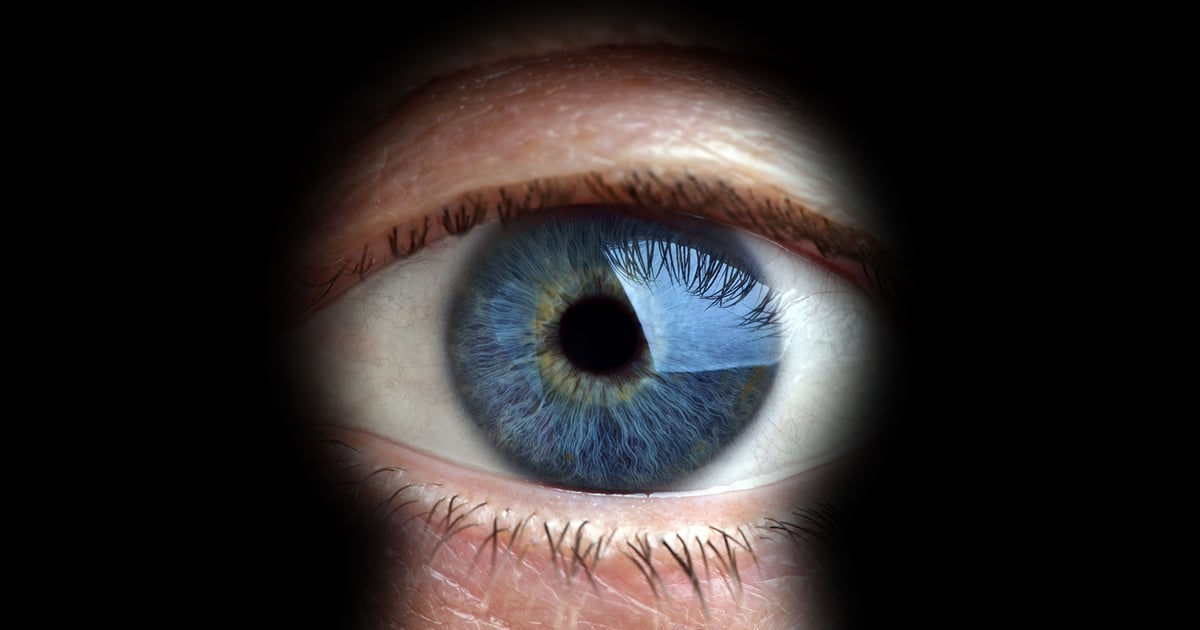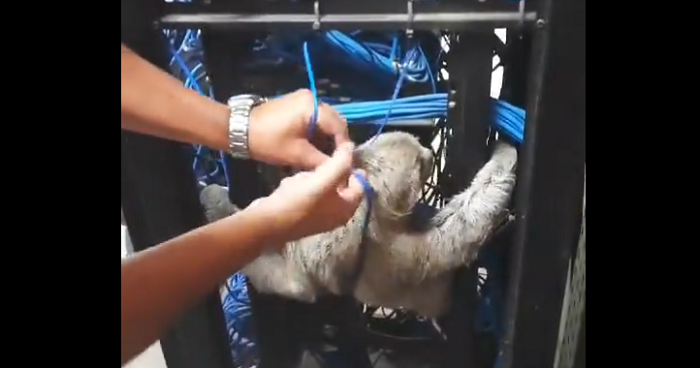In other news today...
-
@loopback0 there’s an entire cottage industry of app makers making basically the same app and rebranding it.
They keep asking me if I want one.
-
@Bulb said in In other news today...:
Silicon, the semi-metal

Also, the sand from which the silicon is made was once stone. The high-purity silicon is not.
Finally, the data is hardly ever written in the
stonesilicon itself. Except in the case of mask ROMs, which have been mostly superceded by flash these days, the data is stored as electric charge in layers above the substrate. However, those layers are generally made of poly, so sorta in the silicon, but not really. It's in the silicon, but it's just stored charge, not a permanent characteristics of the chip.
-
-
-
@loopback0 said in In other news today...:
I'm ok with this, except I do wish more pubs used the same app rather than needing an increasing collection of apps.
Around here quite a few pubs started to use https://www.qerko.com/, and that's the only app I've seen, so it is only one app. Though that is only for paying, not for ordering.
A couple of years ago I even overheard one purser to tell someone that he accepts qerko, but not cards (only cash), because cards were quite a bit slower. Which surprised me, by that time everybody had contactless cards and those look faster than counting cash to me. But he didn't mention the transaction cost, and since qerko is also card (or google/apple pay, which is still card) with extra middleman, I doubt it is cheaper.
-
@Bulb said in In other news today...:
@loopback0 said in In other news today...:
, and that's the only app I've seen, so it is only one app. Though that is only for paying, not for ordering.I'm ok with this, except I do wish more pubs used the same app rather than needing an increasing collection of apps.
A couple of years ago I even overheard one purser to tell someone that he accepts qerko, but not cards (only cash), because cards were quite a bit slower. Which surprised me, by that time everybody had contactless cards and those look faster than counting cash to me. But he didn't mention the transaction cost, and since qerko is also card (or google/apple pay, which is still card) with extra middleman, I doubt it is cheaper.
Qerko would be card with a different middleman. And without the server needing to walk the card to the payment terminal or have a mobile payment terminal to carry around or go fetch and bring to the customer.
Payment terminal processors charge their own fee on top of the card provider’s fees no matter which processor you use, and at the scale of an individual bar you’re probably getting a worse deal than the multi-bar app since you have a much smaller economy of scale.
-
@Zecc said in In other news today...:
Interested developers can now make themselves known at the following address: about.winamp.com/free-llama
For a moment there I was afraid they'd be adding an LLM for some reason; before I remembered it's just the usual Winamp ass-kicking. Darned AI bubble.
but Alexa trying to figure what music we want is one of the few use cases that make sense for the current crop of AI
-
@HardwareGeek said in In other news today...:
@Bulb said in In other news today...:
Silicon, the semi-metal

Also, the sand from which the silicon is made was once stone. The high-purity silicon is not.
Finally, the data is hardly ever written in the
stonesilicon itself. Except in the case of mask ROMs, which have been mostly superceded by flash these days, the data is stored as electric charge in layers above the substrate. However, those layers are generally made of poly, so sorta in the silicon, but not really. It's in the silicon, but it's just stored charge, not a permanent characteristics of the chip.if it doesn't have the same durability of being written with big letters on a hard stone that can last millions of years undisturbed it's just
 anyway
anyway
-
@izzion there was a bar round here that recently made the local news by pointing out that the fees it paid for card transactions for one day would have paid the wages for another member of staff.
-
@Arantor fees are around 2% here
-
@sockpuppet7 said in In other news today...:
@Arantor fees are around 2% here
3-4% is typical in ‘merka, due to the prevalence of rewards cards.
But also (especially during peak times), most food service places run with no more than 20-25% of their gross revenue as labor costs — if they’re substantially over that, they won’t be in business very long (food & materials runs around 50% and building/equipment/utilities costs run around 20%)
So even 2% of your gross to payment fees means if you have 10 staff working the peak normally, those payment fees are staff member #11.
-
@izzion it used to be higher here, when there was a duopoly on the processing of visa and Mastercard cards. then somebody "persuaded" the government to open the market and now any acquiring bank can process the any card
(the acquiring bank being one of the middlemen, there is at least the card brand and the emitter in the way)
-
It’s definitely higher than 2% here, we are largely still in the Visa/MC duopoly with Amex being a very distant third.
-
@izzion said in In other news today...:
Qerko would be card with a different middleman.
The card company is still involved, because it still is a card transaction, though an internet one rather than terminal one, and businesses get the card terminals from their banks here, so qerko is an additional middle man here.
And without the server needing to walk the card to the payment terminal or have a mobile payment terminal to carry around or go fetch and bring to the customer.
Some pubs here ask you to pay at the bar, especially if you want to pay separately as we usually do for lunch. But then splitting the order takes a lot of time there anyway.
Payment terminal processors charge their own fee on top of the card provider’s fees no matter which processor you use, and at the scale of an individual bar you’re probably getting a worse deal than the multi-bar app since you have a much smaller economy of scale.
The terminal processor is always the bank the bar uses here, but I suppose they still do charge more for the terminal transactions than the internet ones—for enterprises, banks generally do charge for incoming transactions, and there is usually a fixed base fee—and that's how qerko can keep something too and not end up more expensive.
-
@Bulb said in In other news today...:
@loopback0 said in In other news today...:
, and that's the only app I've seen, so it is only one app. Though that is only for paying, not for ordering.I'm ok with this, except I do wish more pubs used the same app rather than needing an increasing collection of apps.
Toast is the popular one around here. Doesn't even need an app; they use this magical technology called a website. (At least, they did the last time I paid at the table.)
-
@Arantor said in In other news today...:
It’s definitely higher than 2% here, we are largely still in the Visa/MC duopoly with Amex being a very distant third.
Here on the continent. debit cards ("EC card") are prevalent. "Real" credit card are far less common, and sometimes not accepted.
-
@BernieTheBernie all the debit cards are still either Visa or MC. Though I don't really understand what those companies actually do, because the cards, both the debit and credit ones, are issued by the banks, the terminals are operated by the banks, and most of the web payment gates are also operated by the banks. I suppose the two companies are still needed so that everything interoperates between all the banks.
-
@Bulb That's pretty much exactly it, both contractually (banks that are part of the Visa network have to deal with payments from every bank that's part of the Visa network, not just their fave 5) and technically (along with Europay, they dragged banks kicking and screaming into the chip card era, doing fantastically in Europe for a few decades but arriving slightly too late in America for it to make a difference).
-
@Bulb No, no more. While that still hold true, I could use my debit card at cache machines in Asia or Canada. Now that does not work anymore.
Except when your card shows a "Maestro" or "VPay" (do not know exact names) logo. "GiroPay" is a european network (including some mediterranean holiday destinations).
-
@Zecc said in In other news today...:
I still use Winamp**. It is small, simple, and plays audio files just fine. That's all I need.
** Technically, I'm using WACUP (Winamp Community Update Project) which describes itself as "a patched branch of the final 5.666 Nullsoft release of Winamp".
WACUP looks and works just like the good old Winamp and is in active development, but, unfortunately the last good release of WACUP was in March 2021. Everything after that suffers from the same Enshittification that has ruined so many programs.
-
@Arantor said in In other news today...:
It’s definitely higher than 2% here, we are largely still in the Visa/MC duopoly with Amex being a very distant third.
I mean, there was a monopoly of a middleman other than the Visa/MC, the acquiring bank, that owns and rents that card reading / processing terminals. For some reason the transaction doesn't go directly to Visa/MC servers
-
@Bulb said in In other news today...:
@BernieTheBernie all the debit cards are still either Visa or MC. Though I don't really understand what those companies actually do, because the cards, both the debit and credit ones, are issued by the banks, the terminals are operated by the banks, and most of the web payment gates are also operated by the banks. I suppose the two companies are still needed so that everything interoperates between all the banks.
They ensure that all the banks that use it are working on the same rules, and there is a pesky certification process to ensure our software follows all their rules
-
@sockpuppet7 yes how dare they make you follow certification processes to validate that other peoples' money isn't being lost by your system.
-
@Arantor said in In other news today...:
@sockpuppet7 yes how dare they make you follow certification processes to validate that other peoples' money isn't being lost by your system.
You took the pesky part seriously? I was thinking of scoopy do, like

I found that it's usually meddling kids, but there is some with pesky too
-
@sockpuppet7 I was going with sarcasm personally.
There are people who unironically feel that everything should be deregulated and let the market decide, who will then complain that the market will do exactly that and drive itself into the ground.
-
@Arantor said in In other news today...:
@sockpuppet7 I was going with sarcasm personally.
There are people who unironically feel that everything should be deregulated and let the market decide, who will then complain that the market will do exactly that and drive itself into the ground.
There is one precondition for markets to work at all that economists often overlook—being able to trust each other. And since we've long outgrown numbers of people where we could reasonably remember who upheld their promises in the past and who did not, we need judicial system to enforce laws and contracts.
But whenever the state tried to come up with detailed rules that should be obeyed, it ended up with a lot of administrative overhead and mediocre actual improvements. Instead it works better if the authorities just enforce liability and perhaps mandatory insurance and leave it up to the companies to develop suitable practices.
And that's in fact what did happen with the card companies. It's not the state who defined how the cards should work, it is the two main companies whose reputation, and potential large liability, is at stake. State just enforces that they will be held liable if they mess up.
-
@Bulb I’d be fine with that as long as the “enforcing liability” comes with sufficiently eye-watering penalties for failure to do the needful.
Right now we see this battle playing out across the UK where the water companies were privatised, have turned all their revenue for years into shareholder dividends, failed to adequately maintain the water network and are in at least one case on the verge of bankruptcy for which the debt will be offloaded to the public but not the ownership of the company, meaning the slate will be wiped clean to start all over again.
Meanwhile we’re also at the point where in a number of regions, it is not currently safe to drink drinking water from household taps and it must be boiled first.
No penalties appear to be on the table for any of these companies.
-
@Arantor I meant cases where there still is some competition; there still is some between the banks and between the card companies. For natural monopolies like water distribution the state needs to do a bit more regulation. Still not necessarily telling them how to work, only putting service level specification into the contracts. And at the very least, treat bankruptcy as bankruptcy, i.e. the owners must lose all the value of the shares. And if the bankruptcy is deemed to be caused by improper management¹, the owners should be on the hook for more of the debt.
¹ According to the newer Czech law, the statutory representatives² of a company are obliged to manage it ‘with due care’ and if they fail to, are on the hook for the debt even for a limited liability company. I'm not sure how many times a court actually ruled somebody is though.
² I don't know what the proper English legal term is and Czech Wikipedia doesn't link the Czech term to English; basically the person or people who have the right to act in the name of the company.
-
@Bulb The term would be "corporate officers" I think.
-
@Arantor said in In other news today...:
bankruptcy for which the debt will be offloaded to the public
there is our problem, bankruptcy abuse
-
I thought I'd seen an earlier version of this story posted somewhere around here, but .
More Questions As Judge Blocks Graceland Foreclosure
More Questions As Judge Blocks Graceland Foreclosure – 09:29
— Steve LehtoTL;DW: Somebody tried to foreclose on Graceland. Problem is, according to the current owner, Elvis's granddaughter, Graceland has never been mortgaged. The company that tried to foreclose has no website, no social media presence, uses outlook.com and hotmail.com for email, and their "business office" is a USPS PO box. As soon as Elvis's granddaughter got an injunction blocking the foreclosure sale, saying Lisa Marie's signatures were forged, the alleged lender wasted no time dropping the foreclosure action. However, too late. FBI and other LEO are (probably) already investigating the alleged lender for fraud.
-
It was still around?

-
This is why I invested in physical Midori No Hibi body pillows to be buried with.

 cough cough
cough coughFucking WEEEEEEEEEEEEEEEEEEEEEBBBBSSSS!!!!
-
more and more aging PC gamers may be considering what will happen to their vast digital game libraries after they die.

-
status: my vast digital library will be right where I left it.
-
No correlations with anything are been made at this time.
-
@da-Doctah said in In other news today...:
@remi said in In other news today...:
@DogsB said in In other news today...:
‘My whole library is wiped out’: what it means to own movies and TV in the age of streaming services
On one hand, yeah, we've collectively invented a brand new way to get shafted.
OTOH though, we might have more of the Great Library of Alexandria left if it hadn't been entirely stored on highly combustible physical media, so it's not like this really is a new problem.
We used to contrast printed reports on paper with digital-only records by saying that the more permanent records were "written in stone". Someone failed to realize that the ephemeral computer data relied on silicon.
And were therefore literally written in stone".
By the same logic, anything written in sand is also written in stone.

-
@Kamil-Podlesak Chalk on slate will also work...
-
@DogsB said in In other news today...:
The spyware is able to capture screenshots of a user device every few seconds
False alarm. It's just Copilot++
-
@Kamil-Podlesak said in In other news today...:
@da-Doctah said in In other news today...:
We used to contrast printed reports on paper with digital-only records by saying that the more permanent records were "written in stone". Someone failed to realize that the ephemeral computer data relied on silicon.
And were therefore literally written in stone".
By the same logic, anything written in sand is also written in stone.

Certainly. Why would it be otherwise?
-
-
-
Would you prefer a full-grown sloth over a tiny bug?
Perhaps it just sought some shelter from the Brazilian floods...
-
@BernieTheBernie said in In other news today...:
Would you prefer a full-grown sloth over a tiny bug?
Perhaps it just sought some shelter from the Brazilian floods...



 Qerko | QR payments for restaurants
Qerko | QR payments for restaurants
 About Winamp - Winamp has announced that it is opening up its source code to enable collaborative development of its legendary player for Windows.
About Winamp - Winamp has announced that it is opening up its source code to enable collaborative development of its legendary player for Windows.


 After you die, your Steam games will be stuck in legal limbo
After you die, your Steam games will be stuck in legal limbo



 Paul Raffile on LinkedIn: 🔥 Meta fired me before I even started. 🔎 Meta recruited me to lead… | 2,963 comments
Paul Raffile on LinkedIn: 🔥 Meta fired me before I even started. 🔎 Meta recruited me to lead… | 2,963 comments


